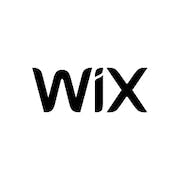"Discover the top event management software for your business needs with our comprehensive buyers guide. Streamline your event planning and boost productivity today."
Are you tired of juggling multiple spreadsheets and documents to manage your events? Do you want to streamline your event planning process and enhance attendee experience? With an abundance of options available in the market, choosing the right software can be a daunting task.
But fear not, for we have researched on event management software solutions to help you make an informed decision. From registration to ticketing, marketing to analytics, our buyer's guide covers it all.
What is event management software?
It is a powerful tool designed to help event planners automate and streamline the planning process, saving time and increasing productivity. It allows managing multiple aspects of an event, including venue sourcing, complex event management, marketing and promotion, and many more functions. A single platform can simplify the entire event coordination process, helping event organizers to deliver exceptional seamless experience to attendees.
Some common use cases of event management tools include:
- Managing schedules and agendas
- Tracking guest registrations and check-ins
- Creating and promoting event content through social media
- Coordinating with vendors and sponsors
- Conducting surveys to gauge attendee satisfaction
- Providing mobile event apps
- Analyzing data on ticket sales and ROI
Several types of businesses utilize these systems including:
- Large corporations hosting conferences or company-wide events
- Small-to-medium-sized entities organizing networking sessions, training seminars, or product launches
- Universities and schools managing student activities, conferences, and graduations
- Non-profit organizations coordinating fundraising events, charity galas, and awareness campaigns
Benefits of using event management solutions
This solution has become a necessity in today's fast-paced world where time is money. This tool automates the entire event planning process, from registration and ticketing to post-event analysis, enabling users to efficiently organize and execute events of all sizes.
Here are some of the main benefits:
-
Time-saving
Organizing an event can be a daunting task that typically requires a lot of time-consuming manual work. Making use of this software, you can easily streamline tasks such as event registration, ticketing, email communication, and more, thereby significantly reducing the time required for planning an event. -
Increased efficiency
Event planning involves coordination with multiple teams and stakeholders, which can be a major challenge if the process is disorganized. The program acts as a central platform, allowing you to easily coordinate with different teams and stakeholders, and keep everyone on the same page. -
Better attendee experience
A smooth and hassle-free registration and ticketing process can significantly improve the attendee experience. This application enables attendees to easily register and purchase tickets online, reducing the stress associated with event planning. Research shows that about 86.6% users of event management software solutions confirm that in most cases these tools allow them to quickly register guests using onsite features. -
Real-time insights
Understanding attendee behavior and preferences can be crucial in planning a successful event. A management platform provides real-time analytics, enabling you to track key metrics such as attendance rates, ticket sales, and more. -
Cost savings
Managing events manually involves significant overheads such as printing and mailing costs. This software eliminates these costs and provides a more cost-effective alternative.
10 fundamental features of event management programs
This program typically comes with a range of tools that make the process of planning more streamlined and efficient and these are the common ones:
- Scheduling - allows users to create and manage events, schedules, and timelines in one central location, avoiding the need for manual tracking.
- Ticketing - an integrated system that allows users to sell and distribute tickets to events through multiple channels, including mobile devices and social media.
- Registration - it facilitates attendee registration, allowing for easy sign-up and access to event information.
- Venue management - assists coordinators to manage venues and seating plans with ease.
- Resource allocation - it allows event planners to allocate budgets, resources, and people according to the needs of the event.
- Budget management - enables users to set and manage event budgets and monitor expenses.
- Analytics and reporting - provides insights to event planners regarding attendance and marketing metrics, enabling them to make informed decisions.
- Communication tools - tools such as messaging, email, SMS, and chatbots help event planners communicate with attendees and vendors regularly and timely.
- Mobile integration - it integrates with mobile devices, allowing quick access to information and making it easier to stay connected.
- Accessibility - with event management software, people with physical disabilities can easily access registration, tickets, seating arrangements, and other critical information to enable their participation in the event.
These functions work together seamlessly, allowing event planners to manage and deliver events like professionals.
What to consider when selecting an event management package?
This solution can be a game-changer for businesses that regularly organize events as shown in recent years that this software market has witnessed a significant growth. However, with a wide range of options to choose from, selecting the right solution can be overwhelming. Here are the factors organizations should consider when purchasing this software:
- Features: Some software comes with basic ones, while others have advanced features like ticketing, registration, and marketing automation. Look for and consider a solution that offers features that align with your business needs.
- User interface: The software should have a user-friendly interface that is easy to use. A complex interface can add unnecessary complexity and detract from the overall event management experience. According to Globenewswire,nearly half (47%) of respondents cited increased complexity as the main reason they're investing more in event management software, while another 15% cited an increased need for control over events.
- Integration: It should be able to integrate with other business applications, such as customer relationship management systems, email marketing software, and social media platforms. This ensures seamless data synchronization and marketing efforts.
- Mobile support: Event management is a dynamic process that often requires mobility. The software should offer mobile support to enable users to manage events on-the-go.
- Security: Security should be a top priority when selecting this type of solution. Ensure that the solution offers robust security features, such as data encryption, user authentication, and secure connections.
- Pricing: Prices can vary significantly so it is crucial to choose a solution that fits your budget, but also offers the necessary features and functionality to meet your business requirements.
- Customer support: Lastly, consider the level of customer support the vendor provides. Look for a vendor that offers 24/7 support, training resources, and a dedicated account manager to assist with any issues that may arise.
Selecting the right event management software can be challenging. By considering the factors outlined above, you can select a solution that aligns with your business needs and ensures successful management of your current and future events.
Market trends for event management software
Event management software continues to be a vital tool for businesses to enhance their functions. With 2024 well underway, industry experts predict a few trends in the software that can affect the events landscape. Personalization is expected to take center stage. The software should cater to the unique needs of each event, and attendees' individual choices should be considered. AI and machine learning features will enhance the decision-making process by analyzing data in real-time and tracking audience engagement.
Sustainability is a growing concern, and event management systems are expected to incorporate features that reduce waste and mitigate the negative impact on the environment. Lastly, remote options are likely to persist, and digital collaboration will be key for virtual attendees. The future of event management software is bright, and these trends will undoubtedly shape the industry for years to come.
Conclusion
In conclusion, businesses that organize events, whether large or small, can benefit immensely from an all-in-one event management platform. It is a valuable tool that automates and streamlines the entire event planning process including post-event analysis, increases efficiency, enhances the attendee experience, provides real-time insights, and saves costs by increasing profit margins.





